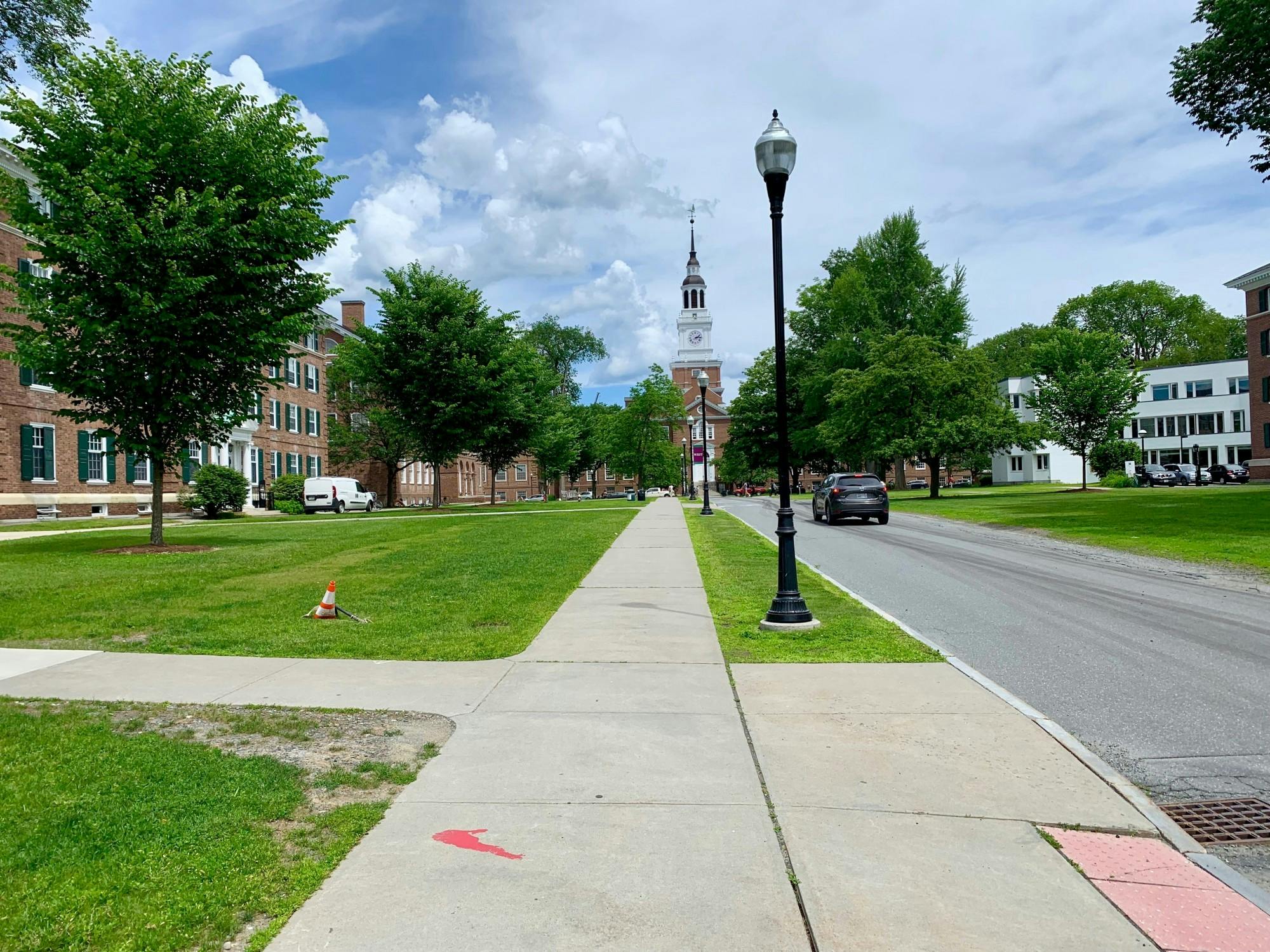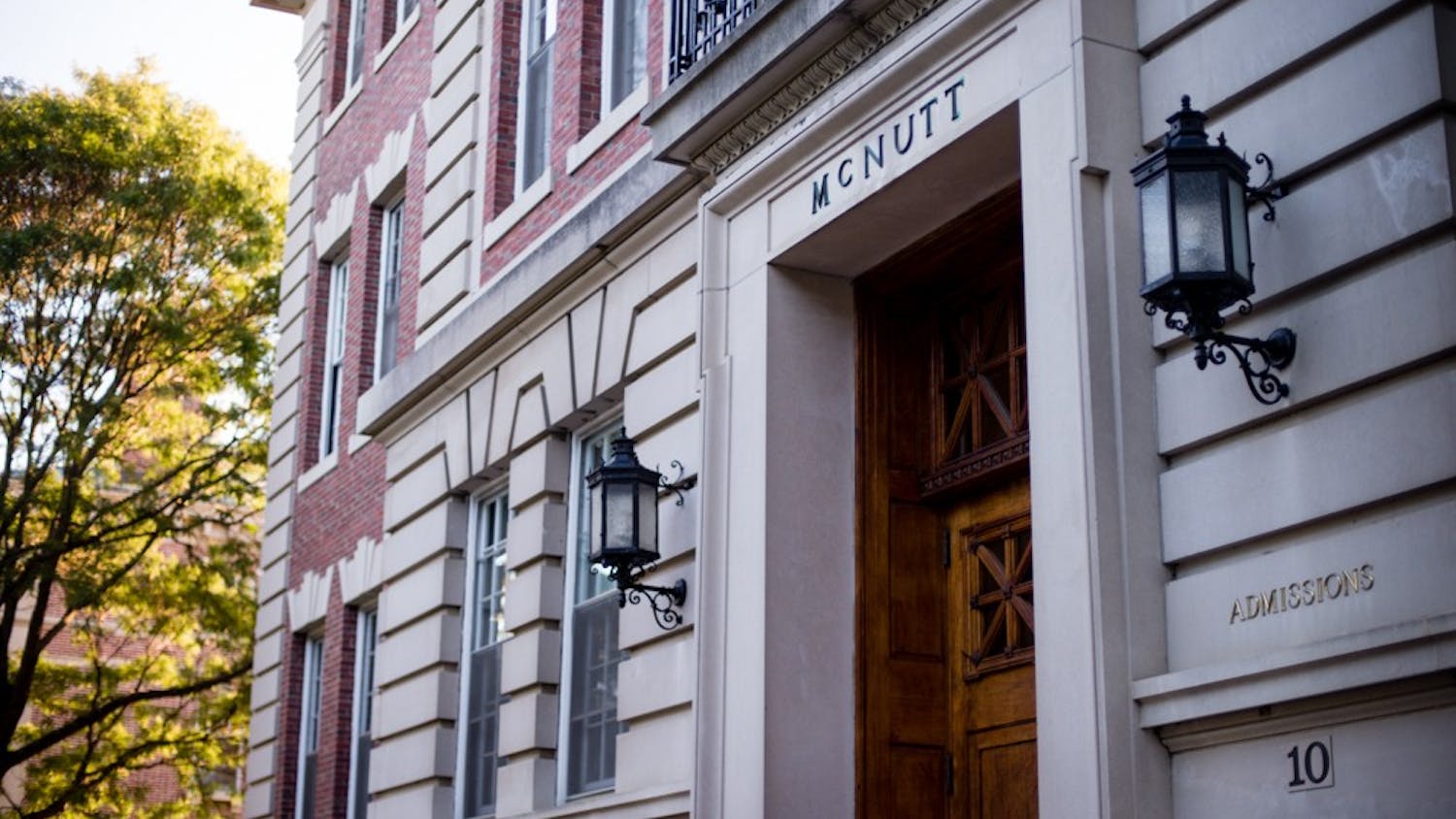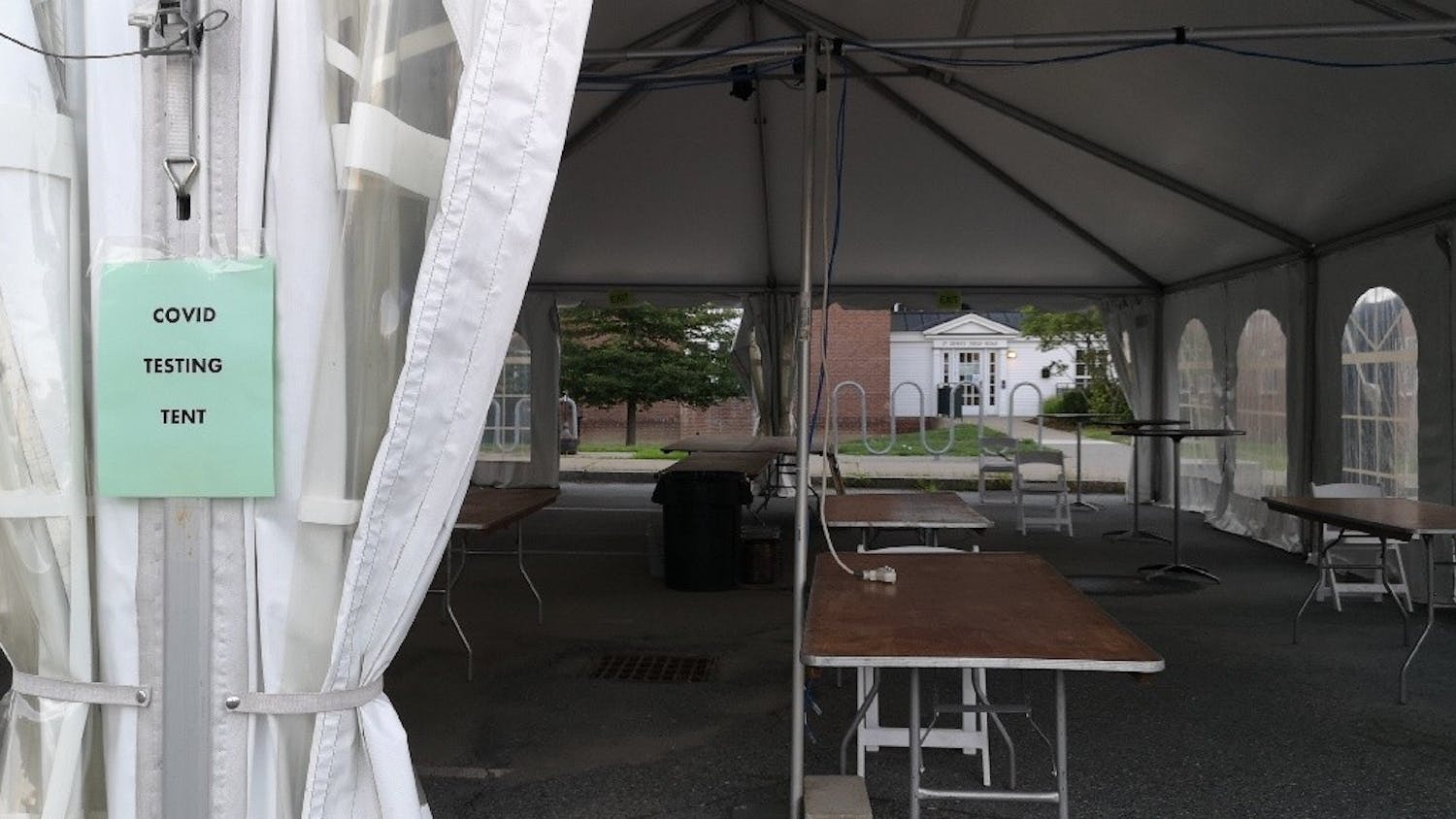During his weekly “Community Conversations” livestream on Wednesday, Provost Joseph Helble announced the cancellation of winter term off-campus programs, summarized budget losses for the fiscal years 2020 and 2021 and provided updates on the selection process for students’ in-residence terms, international student guidelines and student belongings.
According to Helble, Dartmouth canceled all winter undergraduate off-campus programs in 2021 due to continuing travel restrictions related to COVID-19 and the six-month planning time needed for many of the study abroad programs. He added that he is “hopeful” that the College will be able to offer “a limited number” of off-campus programs in spring 2021, which he said Dartmouth will provide more information about in coming months.
At this time, Dartmouth will be able to accommodate all transfer students, ’22s and ’24s who requested on-campus residence for the fall, according to Helble.
Helble also announced that the College plans to finish determining students’ 2020-2021 in-residence terms by July 31, and that students will be notified of their fall term assignments on the same day. Students will learn about their on-campus status for other terms at a later date, Helble said.
In light of the withdrawal of ICE guidelines that would have barred international students from staying at U.S. universities offering only online courses, Helble stated that continuing international students can now take online classes within the United States.
However, the ability of Dartmouth first-year international students to take online classes in the United States remains uncertain. Helble noted that first-year international students are “welcome to continue pursuing their visa applications at this time,” but acknowledged that Dartmouth “has no insight” into the outcome of the visa application process. He added that Dartmouth continues to seek clarification from the Student and Exchange Visitor Program, which sets guidelines for international students to study in the U.S.
Regarding the College’s operations budget, Helble said that the College experienced a “substantial” operating loss of $36 million for the fiscal year 2020, compared to the original projection of a $51 million operating loss. He cited the improved investment market, support from the Dartmouth College Fund and efforts to reduce “non-compensation expenses” as factors that contributed to the reduced budget deficit.
Chief financial officer Mike Wagner said during the livestream that approximately $15 million of the College’s operating losses came from the loss of room and board fees and approximately $7 million came from losses related to professional schools. The other $14 million came from losses related to investment income, research revenue, athletic activities, the Hanover Inn and other activities.
Since spring term, the College has instituted a staff hiring freeze, drawn funds from the revenue stabilization fund and offered retirement packages to eligible employees in order to achieve balanced budget operations.
Wagner noted during the livestream that the hiring freeze did not contribute “a lot” to achieving balanced budget operations in fiscal year 2020 because it was implemented close to the end of the fiscal year. He noted that he expects it will be more helpful in fiscal year 2021. “Non-compensation savings” will cover more than half of the $36 million budget loss, and the rest will likely be covered by the revenue stabilization fund, Wagner said.
According to Helble, the College currently estimates an $100 million loss in revenue for fiscal year 2021 against the annual operating budget of approximately $1.1 billion.
Wagner said that under the hybrid model in which half of the undergraduate student body will be in residence, the room and board fees will likely contribute a loss in revenue of $32 million out of the $100 million estimate. He added that testing, health management and purchase of personal protective equipment is projected to cost about $15 million in fiscal year 2021.
Helble added that over the past week, individual division leaders have received guidelines under the revised budgetary targets of fiscal year 2021 to take additional cost-saving measures.
Interim vice president of campus services and COVID-19 task force co-chair Joshua Keniston said that as of July 22, the College has packed 98 percent of student belongings and is “at the end of the packing phase.” He said that from here, the College is focusing on storing and has added two more teams to handle shipping student belongings. Students who decided to pick up their belongings on campus should have received information on this process, which will run until August 14, he said. Students returning to campus in the fall will be able to access their belongings that are in controlled storage.
Correction appended (Aug. 15, 2020): A previous version of this article incorrectly referred to Joshua Keniston as John Keniston. The article has been updated to reflect the correct name.





